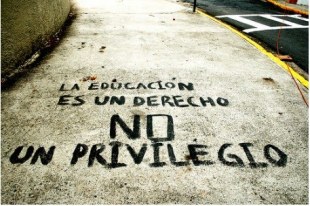
My dissertation not only makes Puerto Rico visible in the research concerning social movements, student activism, and Internet activism; in addition, it provides resistance performance as a concept to describe various degrees of participation in current social movements. Resistance performance is useful for analyzing the entanglements that emerge with collective identities and actions as a continuum between offline and online spaces of resistance. Furthermore, my positionalities as a female, an ally, co-performer, friend, and comrade, allowed me to go “beneath surface appearances, disrupt the status quo, and unsettle both neutrality and taken-for-granted assumptions by bringing to light underlying and obscure operations of power and control” (Soyini 2005:5). This acknowledgement renders an extra sense of reflexivity, commitment, and responsibility not only to my participants but also during the writing process, since my work can be considered as part of my own history. With this in mind, I embarked on writing in an experimental style that narrates the strike as it unfolded while disrupting the present text with past events as a way of depicting the dynamic and complicated processes inherent in the analysis and understanding of the UPR student movement. This allowed me to not only analyze the events of the most recent strike but also invoke a continuity of time and space as history repeats itself, in which the movement’s past is in the present. These interruptions give my study a sense of “social movement spillover” (Meyer and Whittier 1994:291), where other social movements (across time or contemporary) influenced UPR student activists’ frames, actions, organizational structure, and ideologies. As such, this dissertation became part of my resistance performance in challenging and deconstructing the academic way scholars usually write about social movements, since through our work we can arouse or create memories to our readers.
My work is not meant to idealize the 2010-2011 UPR student strike as an utopic movement (since we have much to learn from ourselves), but rather to enrich existing knowledge on both student activism and Internet activism in the island. My study confirms that the 2010-2011 UPR student movement raised the stakes in the politicization of their strike by becoming part of the international student movement to guarantee the accessibility to a public higher education as right and not a privilege. And although the strike ended and many of us have graduated, our struggle still continues.